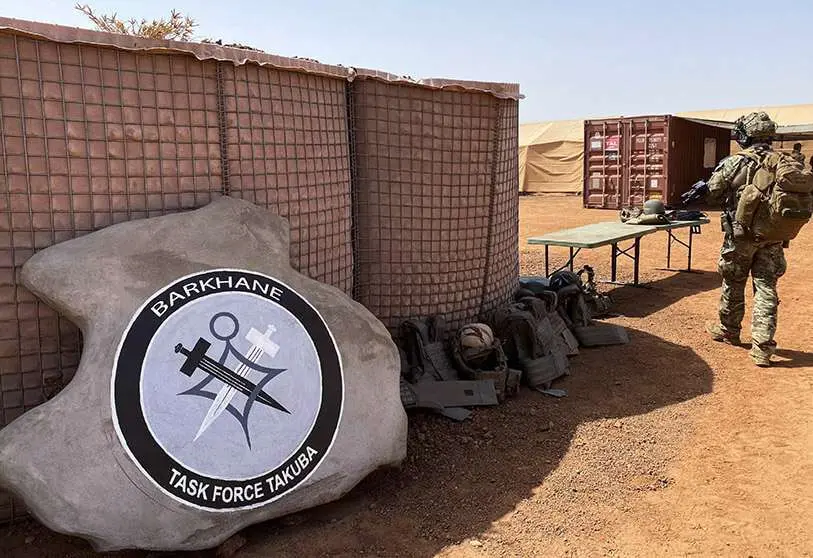France announces the end of Takuba in Mali, the European anti-terrorist force in the Sahel

The Western security architecture installed in Mali more than a decade ago in response to the violent secessionist challenge of the Tuaregs of the National Movement for the Liberation of Azawad (MNLA), in collusion with the jihadist insurgency, against the fragile government of Amadou Toumani Touré continues its dizzying process of dismantling as a result of friction between France and the new Malian military junta, led by Colonel Assimi Goita.
This time it was the turn of the European military force Takuba Task Force, led by French forces, which have played a leading role in the fight against jihadist terrorism in Mali since it was set up in March 2020. The spokesman for the French army general staff, General Pascal Ianni, announced the end of the operation in the country on Friday: "The reorganisation of the French military apparatus in the Sahel (...) has led to the end of the (...) Takuba operations in Mali as of 30 June".
The French Defence Ministry thanked the ten or so states that accompanied France in Takuba until the end for their involvement, including countries such as Belgium, Hungary, Italy and Portugal, but not Spain. Between them, the nine contributed at least 400 troops to the operation; France, for its part, deployed the other half of its forces, 400 soldiers, whose task was to collaborate with the Malian Armed Forces (FAMa) in their crusade against the Islamist insurgency.
Established not without difficulty by former French Armed Forces Minister Florence Parly, Takuba was born as a military link between the different European states to quell the hornet's nest of insecurity in Mali, considered to be the heart of the Sahel. The European force targeted the Islamic State of the Greater Sahara (EIGS), Daesh's regional affiliate, in an attempt to prevent its establishment in the triple border shared by Mali, Niger and Burkina Faso.
The Salafist-jihadist organisation is perhaps stronger today than ever before, and the structural problems related to security remain unchanged. This did not exempt the spokesman for the French General Staff, Pascal Ianni, from praising not only Takuba, but also the other French-initiated operations deployed in the region, such as the moribund Operation Barkhane: "Europeans are capable of making progress together in complex security environments".

General Hervé Pierre, who oversees the collaboration between the French army and its Sahelian counterparts, told AFP that the "transformation towards a partnership model was embodied in Mali by Takuba, but the operation has been hit in the middle of its development". Pierre has no doubt that "Takuba's spirit will live on in the combat partnership with the Nigerians, in an even more balanced relationship".
Takuba, like Barkhane, falls not because of a lack of results, but because of the total rupture between the authorities in Paris and Bamako. Since the first coup d'état in August 2020 against the government of Ibrahim Boubacar Keïta by the military junta, ties began to sour, but it was not until the second coup - "a coup within a coup", according to analysts - against the transitional cabinet just nine months later that French President Emmanuel Macron became inflexible.
Two months later, the Elysée tenant announced a reduction and subsequent reorganisation of Barkhane's forces. Bamako was definitively no longer his preferred partner. From that moment on, the Malian military junta further hardened its rhetoric against France, whipping up anti-French sentiment, and demanded its immediate withdrawal from the country along with its European partners. In their place landed dozens of Russian mercenaries from the Wagner group, linked to Kremlin interests.
The end of Barkhane, together with the end of Takuba, marks a turning point in the geopolitics of Mali and the Sahel. It signifies the withdrawal not only of France, but also of the European Union as a whole, from a crucial regional position that is now occupied by Moscow in a context in which NATO - Takuba's collaborator - defines Vladimir Putin's regime as "the main threat" in the new Madrid Strategic Concept and underlines the fragility of the Sahel in its strategy on the southern flank.








